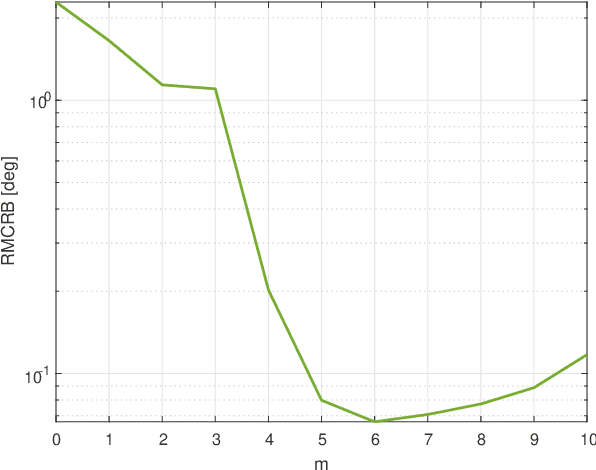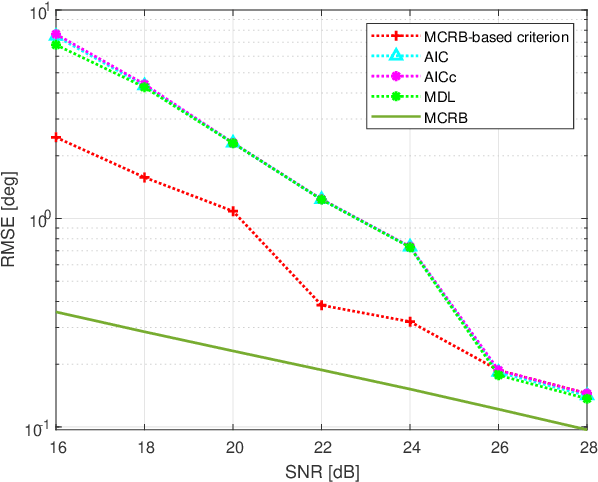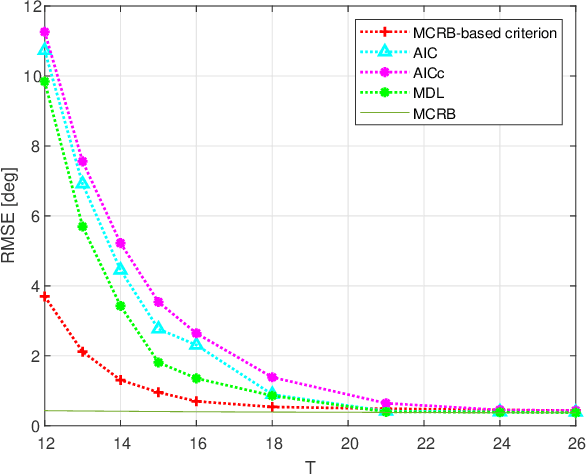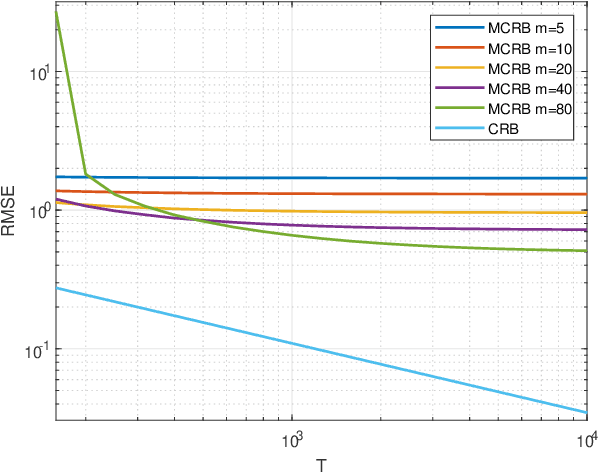Nadav E. Rosenthal
Model Selection via MCRB Optimization
Apr 05, 2025



Abstract:In many estimation theory and statistical analysis problems, the true data model is unknown, or partially unknown. To describe the model generating the data, parameterized models of some degree are used. A question that arises is which model should be used to best approximate the true model, a.k.a. model selection. In the field of machine learning, it is encountered in the form of architecture types of neural networks, number of model parameters, etc. In this paper, we propose a new model selection criterion, based on the misspecified Cramer-Rao bound (MCRB) for mean-squared-error (MSE) performance. The criterion selects the model in which the bound on the estimated parameters MSE is the lowest, compared to other candidate models. Its goal is to minimize the MSE with-respect-to (w.r.t.) the model. The criterion is applied to the problems of direction-of-arrival (DOA) estimation under unknown clutter / interference, and spectrum estimation of auto-regressive (AR) model. It is shown to incorporate the bias-variance trade-off, and outperform the Akaike information criterion (AIC), finite-sample corrected AIC (AICc), and minimum description length (MDL) in terms of MSE performance.
MCRB for Parameter Estimation from One-Bit Quantized and Oversampled Measurements
Mar 28, 2025Abstract:One-bit quantization has garnered significant attention in recent years for various signal processing and communication applications. Estimating model parameters from one bit quantized data can be challenging, particularly when the quantization process is explicitly accounted for in the estimator. In many cases, the estimator disregards quantization effects, leading to model misspecification. Consequently, estimation errors arise from both quantization and misspecification. Traditional performance bounds, such as the Cramer-Rao bound (CRB), fail to capture the impact of misspecification on estimation performance. To address this limitation, we derive the misspecified CRB (MCRB) for parameter estimation in a quantized data model consisting of a signal component in additive Gaussian noise. We apply this bound to direction-of-arrival estimation using quantized measurements from a sensor array and to frequency estimation with oversampled quantized data. The simulations show that the MCRB is asymptotically achieved by the mean-squared-error of the misspecified maximum-likelihood estimator. Our results demonstrate that, unlike in finely quantized scenarios, oversampling can significantly enhance the estimation performance in the presence of misspecified one-bit quantized measurements.
 Add to Chrome
Add to Chrome Add to Firefox
Add to Firefox Add to Edge
Add to Edge